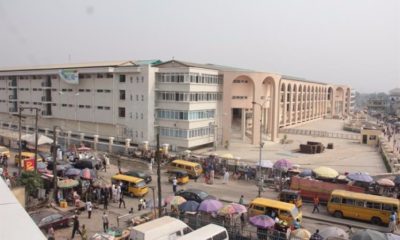Company News
Asoko & CIPE Launch Compliance Verification Product
Asoko Insight is pleased to announce the launch of a new compliance support platform for businesses working with African supply chains.

Company News
NNPC E&P Ltd and NOSL Begin Oil Production at OML 13, Akwa Ibom State
Company News
Manufacturers Grapple with Losses Amid Economic Strain
Company News
Shell Nigeria’s $1.09 Billion Tax and Royalty Payments Power Economic Growth
-

 Naira3 weeks ago
Naira3 weeks agoDollar to Naira Black Market Today, April 24th, 2024
-

 News4 weeks ago
News4 weeks agoARISE News Channel Goes Global: Launches in Nine Southern African Countries
-

 Naira4 weeks ago
Naira4 weeks agoDollar to Naira Black Market Today, April 22nd, 2024
-

 Naira3 weeks ago
Naira3 weeks agoDollar to Naira Black Market Today, April 25th, 2024
-

 Jobs3 weeks ago
Jobs3 weeks agoJob Cuts Hit Tesla: More Than 6,000 Positions Axed Across Texas and California
-

 Travel3 weeks ago
Travel3 weeks agoSaudi Arabia Breaks 70-Year Alcohol Ban, Opening Shop for Diplomats
-

 Naira3 weeks ago
Naira3 weeks agoDollar to Naira Black Market Today, April 30th, 2024
-

 Investment4 weeks ago
Investment4 weeks agoMinister Accuses Past NCDMB Leadership of Squandering $500m on Unproductive Projects




























